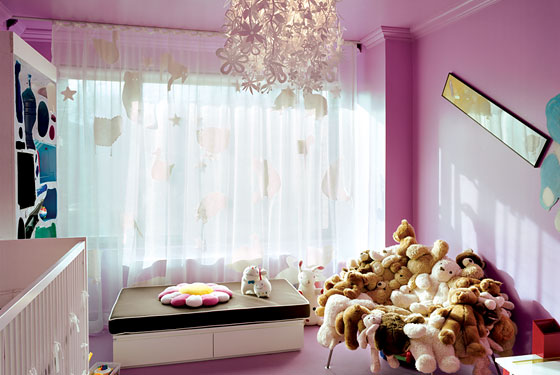
I am not a fan of TMI, the confessional mode, or the sense one gets that the best way to make it as a woman in the media business is to write about yourself. Can’t you tell? But in Curtis Sittenfeld’s interview with Meghan Daum and Emily Gould in this week’s New York Magazine, there is some interesting material that seems applicable to women writing as critics—a field where the greats are great (Ada Louise Huxtable) but the gap between the numbers of men and women practicing is similar to that in architecture itself.
One of the things I get frustrated by is the preoccupation with female likability. For instance, with that Times Magazine piece Alex Kuczynski wrote about her gestational surrogacy, readers seemed to respond to how much they’d want to be friends with her rather than recognizing the article as a crafted piece of writing. Do you see a difference in the way people read nonfiction written by a woman?
E.G.: If a woman writes about herself, she’s a narcissist. If a man does the same, he’s describing the human condition. But people seem to evaluate your work based on how much they relate to it, so it’s like, well, who’s the narcissist?
M.D.: There’s this tradition of women’s magazines—which have been my bread and butter as a freelancer—where the paradigm is that the writing is about relationships, body image, lessons, and it’s always redemptive. An example of this is Eat, Pray, Love, which Liz Gilbert wrote after a heavily reported, far superior book that was nominated for a National Book Award [The Last American Man] and didn’t go anywhere [in sales], through no fault of Liz’s. In my own writing, I tend to be very honest, and my goal is to identify something people think but are afraid to say. That’s not the general cultural expectation of women.
E.G.: When women are honest about their experiences, it’s destabilizing. It’s not socially acceptable for us to think our thoughts are interesting or valuable. Or if you write about personal experiences, it’s like people think you want advice about how to live, like you’re holding a public referendum. Recently I read reactions to Sandra Tsing Loh’s Atlantic essay, “On Being a Bad Mother,” and some of the comments were cowardly, bullying, and also weirdly normative and conservative. What on Earth gives people commenting on a blog under aliases the right to judge Sandra Tsing Loh’s parenting skills? I do think that people who write honestly about their lives are doing people who won’t or can’t a favor, to put it bluntly.
Replace “about their lives” with “about design and architecture” and you have a reasonable critical philosophy. To be able to identify what is right or wrong about an object or a space, and to then be able to write that out in clear, concise prose, understandable to all, is the goal. Not everyone is going to agree, but at least it is out there for people unwilling to take a stand outside their skulls. If I choose to make my confessions in a spatial mode, at least I avoid the charge of narcissism (and having to be photographed in my pajamas).
